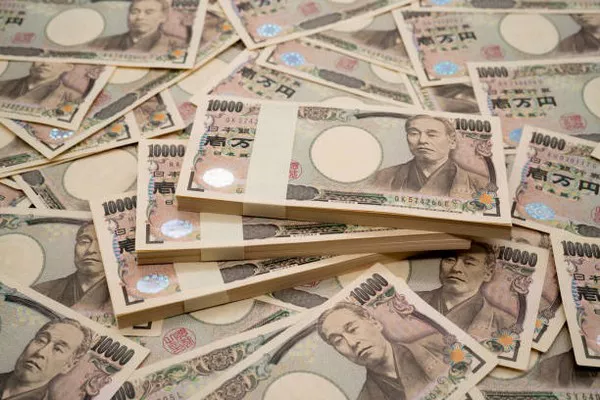The global financial landscape is often punctuated by periods of currency volatility, and the Japanese yen, despite its historical stability, is not immune to such fluctuations. A collapse in the yen, while a relatively rare event, could have profound implications for investors, businesses, and the broader economy. This article explores the potential causes of a yen collapse, the immediate and long-term consequences, and strategic actions that individuals and organizations can take to mitigate risks and capitalize on opportunities during such a financial upheaval.
Understanding the Causes of a Yen Collapse
Before delving into responses, it’s crucial to understand what might precipitate a significant devaluation of the yen. Several factors could contribute to this scenario:
Monetary Policy Divergence: If the Bank of Japan (BOJ) continues an ultra-loose monetary policy while other major central banks tighten, the interest rate differential could weaken the yen.
Economic Instability: Prolonged economic stagnation, deflationary pressures, or a failure to implement effective structural reforms could undermine investor confidence in the Japanese economy.
Geopolitical Tensions: Rising regional tensions or global trade disruptions could lead to capital flight from Japan, exerting downward pressure on the yen.
Debt Dynamics: Japan’s high public debt-to-GDP ratio might become unsustainable, especially if investors demand higher risk premiums, leading to a loss of confidence in the yen.
Immediate Actions for Individuals
If the yen begins to collapse, individuals can take several immediate actions to protect their wealth and financial stability.
Diversify Currency Exposure: Holding assets denominated in multiple currencies can mitigate the risk of currency devaluation. Consider converting a portion of savings into more stable currencies such as the US dollar, euro, or Swiss franc.
Invest in Hard Assets: Gold and real estate often serve as safe havens during currency crises. Gold, in particular, has historically retained its value during periods of high inflation and currency devaluation.
Evaluate Investment Portfolios: Reassess investment portfolios to reduce exposure to yen-denominated assets. This might involve shifting investments into international stocks, bonds, and funds that are less affected by the yen’s decline.
Monitor Inflation Risks: A collapsing yen could lead to imported inflation, increasing the cost of goods and services. Individuals should consider inflation-protected securities and other investments that offer a hedge against rising prices.
Strategies for Businesses
Businesses operating in Japan or with significant exposure to the yen must adopt more comprehensive strategies to navigate a potential currency collapse.
Hedge Currency Risk: Use financial instruments such as forward contracts, options, and swaps to hedge against adverse currency movements. These instruments can lock in exchange rates, protecting future revenues and costs from currency volatility.
Reassess Supply Chains: A devalued yen could disrupt supply chains, especially if raw materials and intermediate goods are imported. Companies should diversify suppliers, increase local sourcing, and consider holding larger inventories to cushion against supply disruptions.
Price Adjustments and Contract Clauses: Renegotiate contracts to include currency adjustment clauses that allow for price modifications based on currency fluctuations. This can protect profit margins from sudden currency movements.
Strengthen International Presence: Diversify revenue streams by expanding into international markets. A broader geographic footprint can reduce reliance on the Japanese market and provide a natural hedge against yen weakness.
Macroeconomic and Policy Responses
On a broader scale, the Japanese government and the Bank of Japan would need to take decisive actions to stabilize the currency and restore confidence.
Monetary Policy Adjustments: The BOJ might need to tighten monetary policy by raising interest rates to attract foreign capital and support the yen. However, this must be balanced against the risk of stifling economic growth.
Fiscal Stimulus: Targeted fiscal stimulus aimed at boosting economic growth and productivity can help counteract the negative impacts of a weak yen. Investments in infrastructure, technology, and education could be prioritized.
Structural Reforms: Implementing structural reforms to enhance economic flexibility, improve labor market efficiency, and encourage innovation is critical. These reforms can help the economy adjust to new realities and improve long-term growth prospects.
International Cooperation: Engaging with international financial institutions such as the International Monetary Fund (IMF) and cooperating with other central banks can provide additional support and credibility to stabilization efforts.
Long-Term Considerations
While immediate actions are crucial, it is equally important to consider long-term strategies to build resilience against future currency shocks.
Developing Financial Literacy: Enhancing financial literacy among the population can empower individuals to make informed decisions during economic crises. This includes understanding currency risks, investment diversification, and inflation hedging.
Encouraging Domestic Innovation: Fostering a culture of innovation and entrepreneurship can reduce economic dependency on external factors. A robust domestic economy with competitive industries is less vulnerable to currency shocks.
Building Robust Financial Institutions: Strengthening the financial sector, including banks and insurance companies, ensures they can withstand and respond to currency volatility effectively. This involves robust risk management practices and adequate capital buffers.
Promoting Regional Integration: Greater economic integration with neighboring countries can provide stability. Regional trade agreements and economic partnerships can reduce dependency on any single market and create a buffer against external shocks.
See Also Why Is Japan In Recession? Causes and Implications
Conclusion
A collapse in the yen, while unlikely to occur suddenly, would have far-reaching implications for individuals, businesses, and the broader economy. By understanding the potential causes and implementing strategic responses, it is possible to mitigate the adverse effects and navigate through the financial turbulence. Proactive measures, such as currency diversification, investment in hard assets, and effective hedging strategies, are essential for individuals and businesses alike. At the macroeconomic level, coordinated policy responses and long-term structural reforms are crucial to restoring confidence and ensuring economic stability. In an interconnected global economy, preparedness and adaptability are key to weathering any financial storm.


